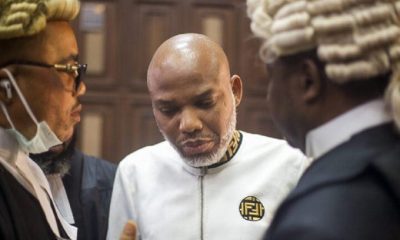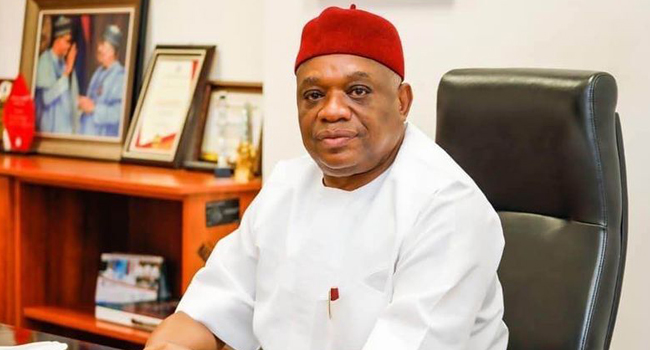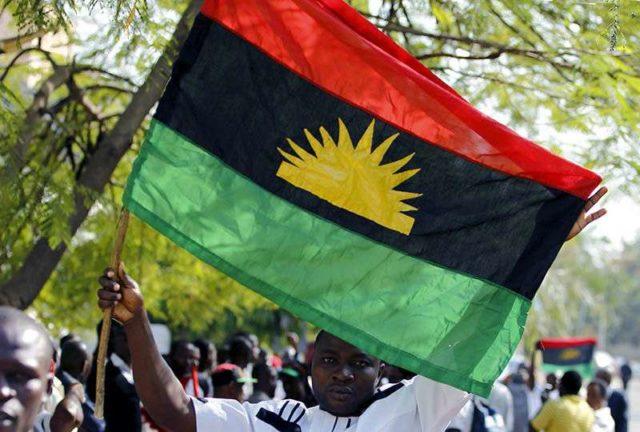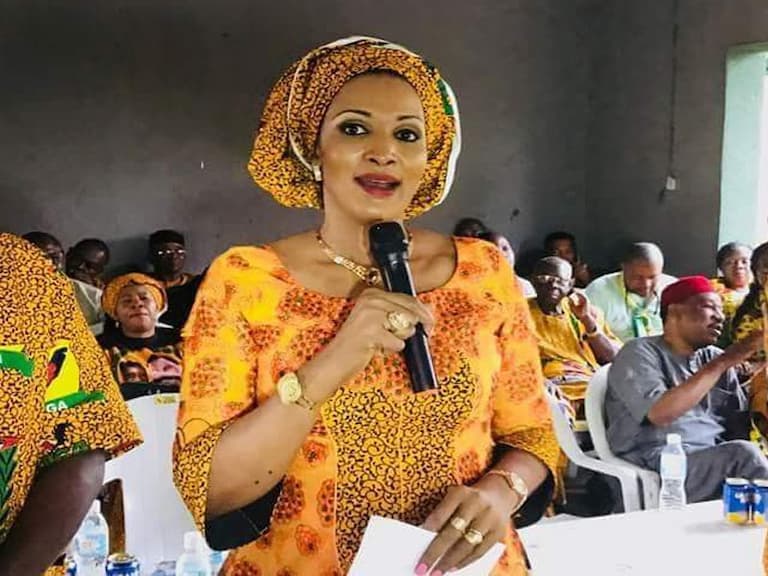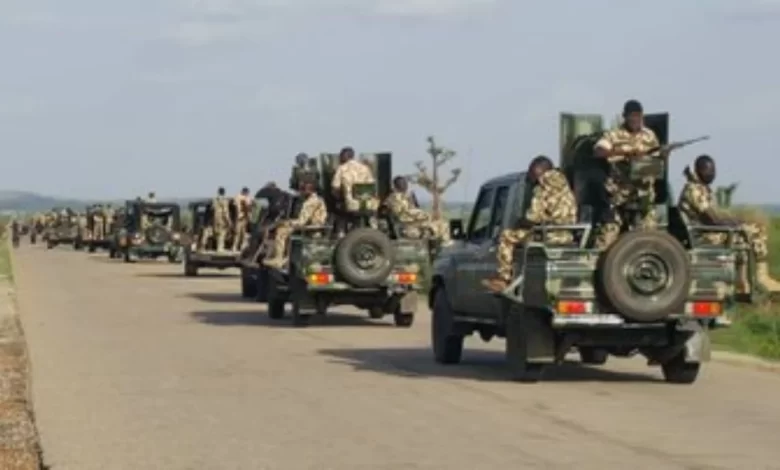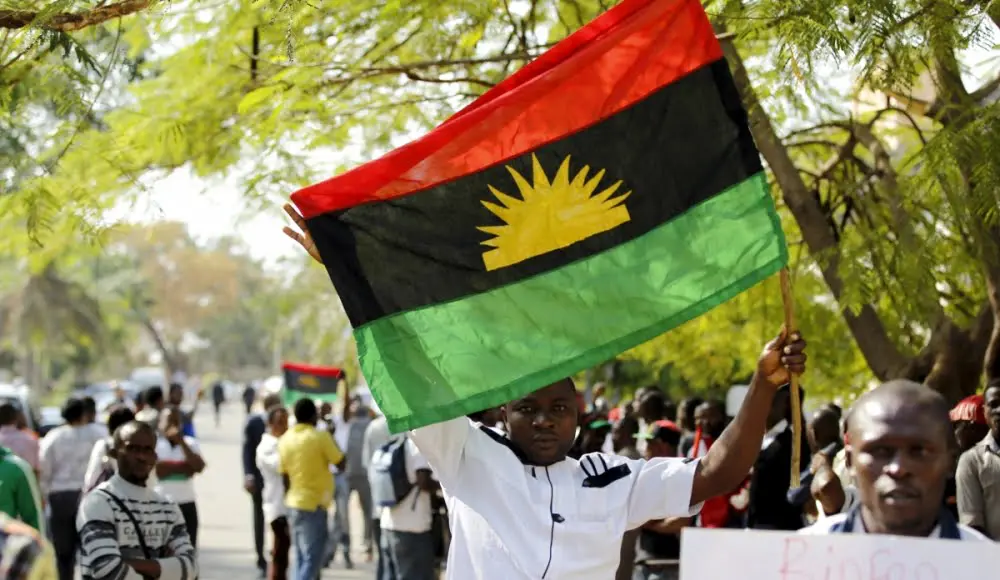Metro
Justification For Resuscitating The Sovereign State Of Biafra

Accordingly, Sir James Robertson, the last colonial Governor-General, ensured that political power at the centre was eventually handed over to northerners so that the British could continue to exert influence on her puppets from a distance.
A persuasive case can be made that for very bad reasons colonial officials were biased in favour of northern Nigeria to the detriment of the south and Nigeria as a whole, which was why Sir Tafawa Balewa was chosen as Prime Minister instead of Dr. Nnamdi Azikiwe or Chief Obafemi Awolowo who had the intellectual sophistication and executive experience as Premiers of their respective regions to govern a newly independent complex geopolitical construct like Nigeria.
Read Also: Major Nigeria Newspaper Headlines For Today, Sunday, August 23rd, 2020
(The same colonial favouritism of the north is probably the reason why the British establishment knighted two frontline northern politicians, Ahmadu Bello and Balewa, but did not extend the same honour to Azikiwe and Awolowo.)
Now, from the perspective of southern Nigeria, the benefits of Lugardian amalgamation pale into insignificance when juxtaposed with the violence and destruction unleashed on the people by the colonisers, coupled with the socio-political disruptions and psychological trauma which resulted from the process.
The same is partially true for northerners, except that after independence their military-civilian elite began to reap more and more benefits from the northernisation policy of Balewa instigated by the colonial administration and from overcentralisation of political power inaugurated by the military coup of January 15, 1966.
The second reason for Biafra which can be distilled from the first is the complex multiply plural nature of Nigeria. But this time around I wish to focus more on religious differences, especially between the Muslim north and the Christian south, with the understanding that there is a significant population of Muslims in the south and of Christians in the north. (In the mind of a typical core Fulani Muslim, southern Muslims belong to the inferior category of Muslims.)
The incredible diversity of the more than two hundred and fifty ethnic groups and subgroups, with their different cultures, languages and lifestyles is compounded by the huge difference in outlook between Christians and Muslims, brought to limelight on October 27, 1999 when Governor Ahmed Sani Yerima introduced sharia in Zamfara state.
In recent years, Fulani caliphate colonialists whose philosophy of “Conquer and Islamise” is in tandem with the core objectives of Boko Haram, Myetti Allah, and other Islamist terrorist organisations are working really hard to impose Islam throughout southern Nigeria.
Only few southerners knowledgeable in Islamic scriptures know that prominent members of the dominant Fulani power block consider it their Allah-approved right to lead the country and spread sharia nationwide, as adumbrated in remarks credited to Alhaji Ahmadu Bello twelve days after independence to the effect that Nigeria should be the estate of their great-grandfather, Usman Dan Fodio, with the rest of the country serving as a tool to maintain Fulani hegemony.
Unfortunately, southern politicians and the elite in general are not taking the encroaching Islamisation which has gathered more speed since 2015 very seriously, and it might be too late to reverse the trend once it crosses the Rubicon, so to speak.
There is no country in the world with a huge population of Muslims and non-Muslims that can boast of stable constitutional democracy because whether the Muslims control or do not control the levers of political power they cannot stop until Islam becomes the state religion.
Besides, the Quran and the Hadith are fundamentally radioactive to modern democratic governance, since they stipulate that sharia is the absolute Allah-ordained law to guide the rulers and the entire community, and prescribe extremely harsh measures (including gruesome capital punishment) to ensure compliance.
In this connection, the ruling Muslim cabal in northern Nigeria have always used religion as an instrument of political domination, thereby making politics at the centre inherently unstable, divisive, and very acrimonious.
This explains why Maj. T.Y. Danjuma led a band of bloodthirsty northern soldiers, tacitly supported by Lt. Col. Gowon, to brutally murder Maj. Gen. J.T.U. Aguiyi-Ironsi to ensure that northerners took back power and dominate the army, an action that kick-started the succession of military coups executed by northerners for Muslim northerners.
Some might say that Gowon and Danjuma are Christians. But Christian military officers from the middle-belt have always been beholden to their caliphate overlords in accordance with the Sardauna’s Fulani supremacist proclamation referred to earlier.
Hence it is not surprising that one of the leitmotifs in all the crises that have reared their ugly heads since the foundation of Nigeria are religious riots in which hundreds of Christians of Igbo extraction are still being killed in the north. Lord Harcourt and Lugard Lugard made a big mistake by not considering the propensity of Muslims to seek to lord it over non-Muslims before deciding to bring the north and south into one amalgam.
Any assessment of the periodic eruption of secessionist agitation in the former eastern region since 1967 that does not reckon with the religious factor is fundamentally incomplete. For all its weaknesses, liberal democracy is better than theocracy, let alone Islamic theocracy under sharia.
And given the fundamental republican nature of traditional Igbo society anchored on the democratic principle of ohacracy, and that an overwhelming majority of Ndigbo are still Christians despite the aberrant pro-Islam orientation of political carpetbaggers like Orji Uzor Kalu, Rochas Okorocha and, lately, Hope Uzodinma, I predict that the people will resist the Islamisation project with everything they have.
Personally, of the three Abrahamic religions, I detest Islam the most. If resuscitation of Biafra will prevent Islamisation of Igboland, then let Biafra come.
One of the most important reasons for endorsing the quest for Biafra is the horrible experiences of Ndigbo and by extension the former eastern region in Nigeria.
Most educated Nigerians from outside Igboland in particular often employ facetious acrobatic arguments to deflect the point made by Prof. Achebe that “Nigerians will probably achieve consensus on no other matter than their common resentment of the Igbo.”
Achebe might have hyperbolised the actual situation, but there is no doubt that the weight of inter-ethnic suspicion and distrust is heavier on Ndigbo than on any other ethnic group in the country.
People from other areas outside Igboland often pretend not to know that the preeminent position of Ndigbo in our national life before the revanchist coup of July 29, 1966 was more the result of the adventurous and can-do spirit of a typical Igboman than the outcome of government official favourable to the Igbo.
Right from time the quota system has been implemented in a manner that favours the north. Unfortunately, the success of Ndigbo has engendered what Prof. Achebe described in Igbo as ekwolo or deep resentment borne out of jealousy in Nigerians from other ethnic groups, especially the Hausa-Fulani and the Yoruba.
The Igbo partially share the blame for this: some of the successful ones are too arrogant and exhibitionist, although these weaknesses, to be candid, are universal amongst human beings across cultures and ethnicities and do not warrant the depth of dislike towards the “Jews of Africa.”
That said, the simple truth is that the Igbo are hated by other ethnic groups out of envy and jealousy for being successful against all odds, despite the fact, correctly noted by one of the foremost Nigerian historians, Prof. Tekena Tamuno, that the Igbo are the makers of modern Nigeria.
Due to the hatred, Ndigbo have been by far the victims of all the riots, pogroms and bloody religious uprisings that occurred in the north, including the Jos and Kano killings of 1945 and 1953 respectively, the Maitatsine riots of 1981, the beheading of Gideon Akaluka masterminded by Sanusi Lamido Sanusi (1995), Kaduna riots of 2000, Miss World Riots of 2002, Yelwa massacre of 2004, the cartoon of Prophet Muhammad crisis (2008), post-elections violence (2011), killing of Biafran protesters in several places in Igboland from late 2015 to February 2016, the murderous Operation Python Dance (2017), and several others.
Without a doubt, the greatest evil the rest of Nigeria had visited on Ndigbo and her immediate neighbours that constituted the defunct Biafra occurred during the civil war and few years afterwards.
Advertise or Publish a Story on EkoHot Blog:
Kindly contact us at [email protected]. Breaking stories should be sent to the above email and substantiated with pictorial evidence.
Citizen journalists will receive a token as data incentive.
Call or Whatsapp: 0803 561 7233, 0703 414 5611


